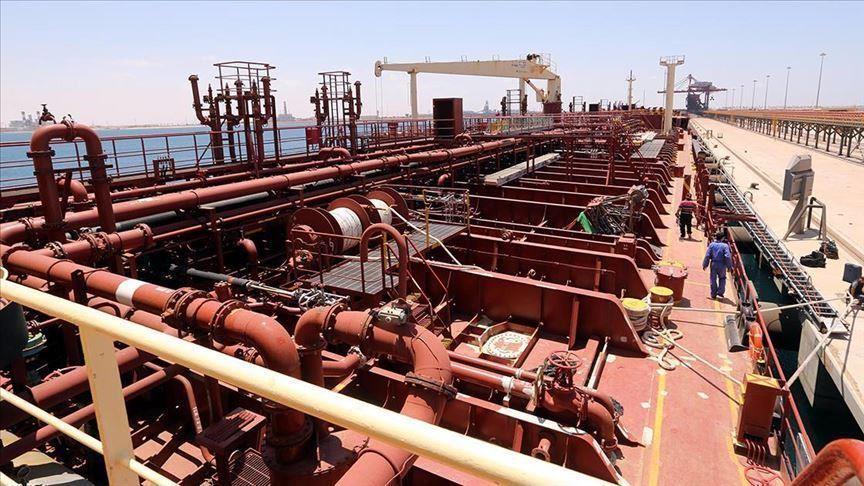Renegade warlord Khalifa Haftar, leader of illegitimate armed militias in eastern Libya, said on Saturday that he will continue to block oil production until his conditions are accepted.
Sharing a video message on social media, Ahmed al-Mismari, the spokesman for Haftar’s militia, while reading a written statement demanded a share in the revenue earned from oil production.
The conditions stipulated in the statement included to deposit oil revenues in the bank account located in a third country and to establish a mechanism to distribute proceeds equally. He also asked for conducting an audit of Libyan Central Bank.
Mismari said if the conditions are not met, his forces will continue to put a halt on oil production.
Libya’s National Oil Corporation (NOC) said on July 5 that it has video and sound recordings to prove that the Al-Sharara oil field has been occupied by foreign mercenaries.
The NOC also reported that the mercenaries, who have entered Sidra oil port in eastern Libya just a few days ago are making it their military center.
The oil production has almost come to a standstill in Libya after pro-Haftar groups shut down oil facilities in eastern parts of the country in January to squeeze resources of the UN-recognized Libyan government.
Libya with the largest oil reserve in Africa can produce 1.2 million barrels of crude oil per day. But the production has fallen below 100,000 barrels a day due to the interruptions by the pro-Haftar groups over the past six months.
Ironically, the country rich with oil production is witnessing long queues of people to get fuel these days.
Experts say that Haftar, who suffered heavy losses against the Libyan government and is under considerable international pressure is seeking a way out for political negotiations. They believe that he is using oil production as a bargaining chip.
-Prolonged blockade to affect oil wells
The NOC had warned that the prolonged cut in the oil production would damage infrastructure. It can halve production for a long time, and permanently impair the efficiency of oil wells.
Since April 2019, Haftar's illegitimate forces have launched attacks on the Libyan capital of Tripoli and other parts of northwestern Libya, resulting in more than 1,000 deaths, including civilian women and children.
However, the Libyan government has recently achieved significant victories, pushing Haftar forces out of Tripoli and the strategic city of Tarhuna.
The country's new government was founded in 2015 under a UN-led agreement, but efforts for a long-term political settlement failed due to a military offensive by warlord Haftar, who has been backed by France, Russian paramilitary group Wagner, United Arab Emirates, and Egypt.
The UN recognizes the Libyan government headed by Prime Minister Fayez al-Sarraj as the country's legitimate authority.
Reporting by Enes Canli in Tripoli
Writing by Sena Guler
Anadolu Agency
energy@aa.com.tr


